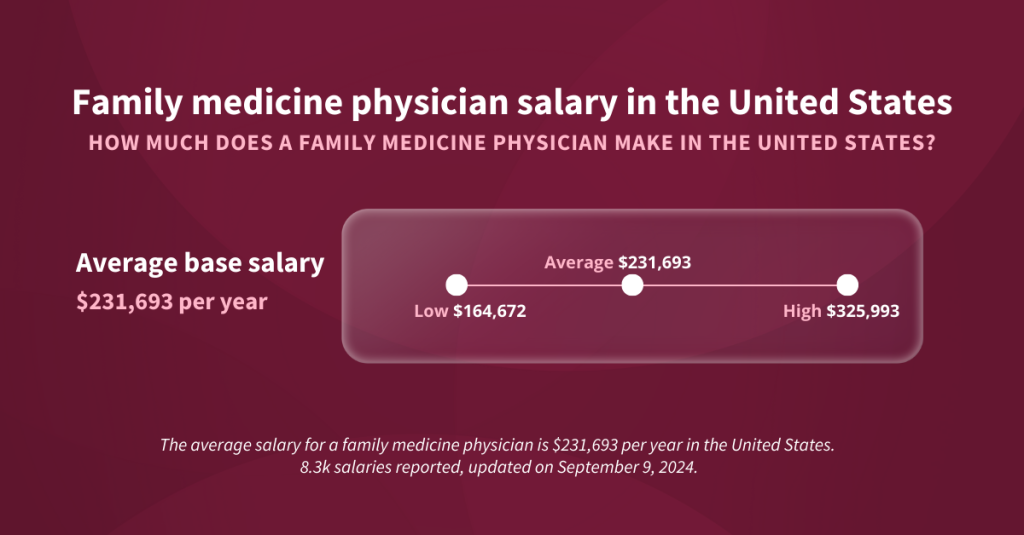
Family Medicine Subspecialties
Learn more about the various family medicine specialization options in this blog
Many physicians are attracted to family medicine because it is not limited to a particular disease or organ, or to a particular group of patients. Family medicine gives you the opportunity to care for families and patients across all age groups, genders and illness experiences. A family medicine specialist means being a physician who provides comprehensive health care for individuals of all ages, from infants to the elderly. Becoming a family medicine doctor means understanding this broad scope of care and developing the commitment to serving diverse patient needs.
However, for doctors who want to hone their skills and enhance their expertise, there are options for choosing family medicine subspecialties. These are fantastic options for those family medicine practitioners who feel particularly inspired or motivated by certain aspects of the family medicine field. Read on to find out more about what subspecialties are available in family medicine and how to become a family medicine specialist.
What is a family medicine physician?
First, let’s answer ‘what do family doctors do?’ Family medicine is one of the broadest medical specialities, with physicians who specialize in this field treating the full spectrum of patients in terms of gender and age. Family medicine forms part of primary health care, with the American Academy of Family Physicians (AAFP) describing family doctors as being ‘dedicated to treating the whole person.’ This means that as well as focusing on many different types of patients, family medicine physicians are also trained to understand the entire body instead of just one organ or one illness.
Additionally, a family medicine physician can also perform routine patient check-ups, such as full-body screenings, health-risk assessments, and counseling about the importance of a healthy lifestyle and how to achieve it.
Family medicine subspecialties
Family med doctors focus on integrated care and treating the patient as a whole, and physicians are extensively trained to provide comprehensive health care and treat most ailments. However, within this broad field there is still opportunity to specialize on one particular aspect of family medicine, while still being knowledgeable about the health care experience as a whole. There are a variety of these family med subspecialties for physicians to choose from, so let’s jump right in:
Adolescent medicine
A family physician who specializes in adolescent medicine is a multidisciplinary health care specialist. They are trained to be experts in physical, psychological and social characteristics that are unique to adolescents and their health care problems.
Geriatric medicine
This is a family physician with expert knowledge of the aging process, who cares for geriatric patients in the patient’s home, their office, long-term care settings (such as nursing homes) and the hospital. They have special skills that enable them to assist in the diagnostic, therapeutic, preventive and rehabilitative aspects of elderly illnesses.
Hospice and palliative medicine
Specialists in hospice and palliative medicine are family physicians who provide care to prevent and relieve the suffering experienced by patients with life-limiting illnesses. They work closely with interdisciplinary hospice or palliative care teams to optimize the quality of their patients’ lives. They are also trained to help with the physical, psychological, social and spiritual needs of their patients and their patients’ loved ones.
Pain medicine
Pain medicine specialists are family physicians who diagnose and treat patients experiencing acute or chronic pain in both hospital and outpatient settings. They also diagnose and treat pain related to cancer. These specialists work with other specialists to coordinate the care needs of their patients.
Sleep medicine
Family physicians who specialize in sleep medicine are experts in the diagnosis and management of clinical conditions that occur during sleep. These can include conditions that disturb sleep or that are affected by disturbances in the wake-sleep cycle. Sleep medicine specialists are able to analyze and interpret comprehensive polysomnography and have expertise in managing sleep laboratories.
Sports medicine
A sports medicine specialist is a family physician who specializes in preventing, diagnosing and treating injuries related to participation in sports and/or exercise. This subspecialty of family medicine also deals with illnesses and diseases that might impact health and physical performance.
How to choose a subspecialty in family medicine?
There are several factors to consider when making a decision about pursuing a family medicine subspecialty. The most important factor is where your interests and passions for family medicine lie. Your passion should be both for clinical practice in that subspecialty and also for research. MD program students can and should gain experience in the subspecialties they are interested in through clinical electives (during clinical rotations), to see which they enjoy and whether the subspecialty is a good fit for them.
As you rotate through these electives, ask yourself whether you are going to be happy doing this for the rest of your life. Seek out experienced mentors in your desired subspecialties and discuss the opportunities/challenges they face, and how they foresee the evolution of the field in the next 10-15 years and beyond. Speak to current fellows about their experiences and what made them choose that subspecialty.
Fellowships in family medicine
Family medicine physicians who decide to pursue a subspeciality undertake fellowship training after residency. During fellowship training for family medicine practitioners, a physician follows a specialist closely to train in a subspecialty like those listed above. The learning physician is known as a fellow.
Being a specialist is a coveted route in the medical field and many medical students want to become specialists, making it a competitive environment to work in. The doctors who lead family medicine fellowship training are experts and leaders in their field, making the experience to learn alongside them invaluable.
Once you have made your family medicine subspecialty choice and you embark on your fellowship to becoming a specialist doctor, you can also earn a subspecialization certificate by completing additional training and exams. Family medicine uniquely requires that its physicians maintain certification in family medicine and the subspecialization area. Certificates of Added Qualification (CAQs) are valid for 10 years, and physicians must apply for recertification to renew the certificate (in addition to recertifying in family medicine after 10 years).
Should you choose a subspecialty in family medicine?
Electing for a subspecialty in family medicine has its pros and cons. Generally, fellowships last at least an additional 12 months after residency training (although they vary by program). This will extend your education timeline. By narrowing your focus to a subspecialty, you may lose some of the breadth of experience gained in your family medicine training. During residency, family medicine physicians receive in-depth training across the human lifespan, from birth to death. This knowledge may understandably diminish as a doctor focuses on a single specialty.
You should also consider your interest in a versatile and flexible career. Family physicians are multipurpose specialists who deliver care in a variety of settings, from office practices and hospitals to in-patient facilities and health centers. They respond to the needs of their communities and patients, and are able to adapt their procedures and tailor their clinical services to patients and their situations. Specialists do not maintain this same flexibility, as their specialty dictates who they will treat and where they will provide treatment.
However, if you dream of being an expert in your field, leading the way in innovation and conducting research for a subspeciality that you’re passionate about, then you should opt for a family medicine subspecialty. Partaking in family medicine fellowships will be an incredible experience, where you will learn from the best in a field and sharpen your focus on the area you feel most inspired and excited by.
Your choice should really come down to this question: ‘what do you want to do for the rest of your life?’ Let your passion and clinical interests inform the decisions you make, and you will undoubtedly be on the right medical career path.
Family medicine jobs and salary

For the most current financial information, please visit: www.indeed.com/career/family-medicine-physician/salaries
Family Medicine physicians play a crucial role in health care, offering comprehensive care across all ages, from newborns to the elderly. With the flexibility to work in various settings — including hospitals, clinics and private practices — family medicine specialists enjoy a dynamic and rewarding career.
In the United States, salaries typically range from $200,000 to $250,000 USD per year, with variations depending on experience, location and practice setting. According to the AAFP (American Academy of Family Physicians), those in higher-demand areas or with more experience can earn upwards of $300,000 USD annually. While salaries for subspecialists can vary significantly, the more knowledge and experience a specialist has, the more they receive in compensation. Importantly, the entire field offers a fulfilling blend of patient care and work-life balance, making it an attractive choice for those passionate about long-term patient relationships and community health.
Choosing a career in family medicine means embracing a profession dedicated to the well-being of individuals and families, with ample opportunities for personal and professional growth. As health care continues to evolve, the demand for skilled family medicine practitioners remains strong, ensuring a stable and impactful career path.
Conclusion
For those considering medical school, family medicine fellowships and subspecialization decisions can seem a long way away. However, it is always very important to know whether the program you are considering can help you achieve your practice goals.
Through our accreditation status and key state approvals, Medical University of the Americas is proud to help students achieve strong residency placement rates and go on to practice in all 50 U.S. states, Canada and around the world. This puts you on the road to quality fellowships and subspecialization opportunities.
FAQs About Family Medicine
A general family medicine doctor will help support and treat people of all ages, and help address a wide variety of illnesses and health needs. A patient’s first point of contact for any health related need is often with a family medicine doctor, often called a general practitioner. A family practice doctor who specializes in a particular branch of family medicine will focus on specific groups of patients (adolescents, the elderly, etc.) and specific types of medicine (sports medicine, palliative medicine, etc.).
Family medicine doctors working in the United States typically make between $200K and $250K USD annually, although certain subspecialists and more experienced practitioners can certainly make more. For the most current average, visit: indeed.com/career/family-medicine-physician/salaries
Aspiring family medicine doctors should first consider an MD program that will allow them to undergo clinical rotations at quality hospitals and medical centers. During rotations, MD students should choose elective rotations in family medicine and related subspecialities, to determine if the field is a good fit. Then med students should apply for family medicine residencies for after med school, and consider family medicine subspecialty fellowships after residency.
Yes, although it is one of the broadest medical specialties, with many related subspecialities for aspiring practitioners to consider. MD program graduates who wish to practice family medicine should undertake a family medicine residency (usually 3 years), and can also subspecialize through post-residency fellowships in subspecialities such as sports medicine, pain medicine, geriatric medicine, etc.

Useful links
Get in touch for more information